We are on the hunt for the next Google and Amazon
When I founded Ox Capital Management 18 months ago, my team and I set out to deliver consistent outperformance in an asset class that has traditionally been overlooked by Australian investors. Despite the political and macro challenges, the Ox Capital team believe that emerging markets are better placed now than they have been in recent living memory.
We believe global inflation is going to remain stickier for longer. And unlike in previous cycles, when a strong US Dollar has pummelled the values of assets in emerging markets, this time has been different.
Why, you ask?
- Balance sheets at the fiscal and corporate levels are looking healthier,
- Demographics are favourable, and
- The Emerging Markets world ex-China is starting to gain some traction among investors (both sophisticated and retail).
This all amounts to what we believe is a paradigm shift.
And what better way to gain access to this theme than with an experienced team that knows the lay of the land? Our portfolio management team looks for high-quality companies that are trading at discounted valuations and benefitting from macro tailwinds. It's not exactly revolutionary but it's a proven process that we swear by.
In the following video, I discuss in further detail the Ox Capital process and how it is enabling us to beat the benchmark. I'll also share some regions and thematics that we are most interested in right now.
EDITED TRANSCRIPT

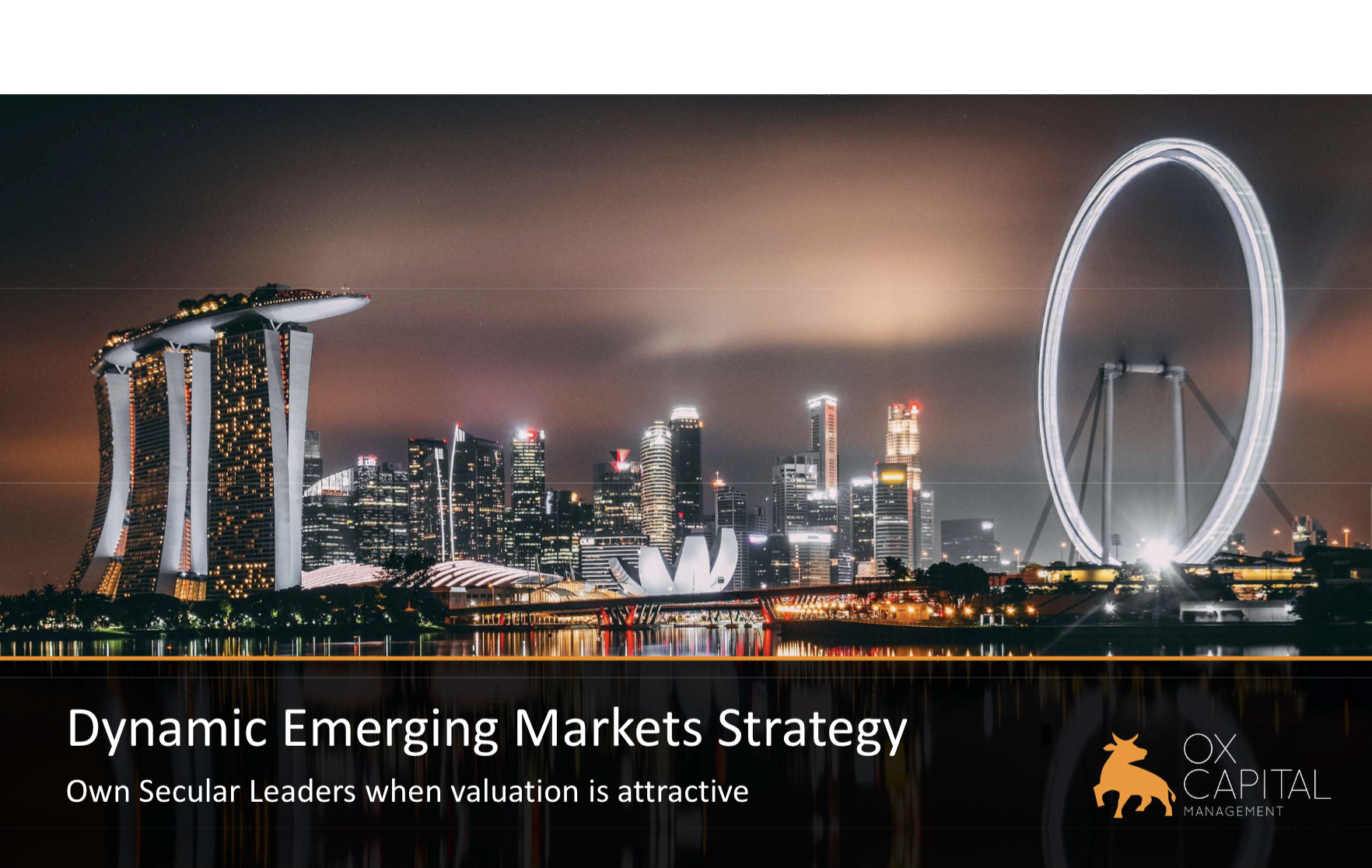
So, I have been investing in Asian markets for almost two decades and have generated double-digit returns over that time.
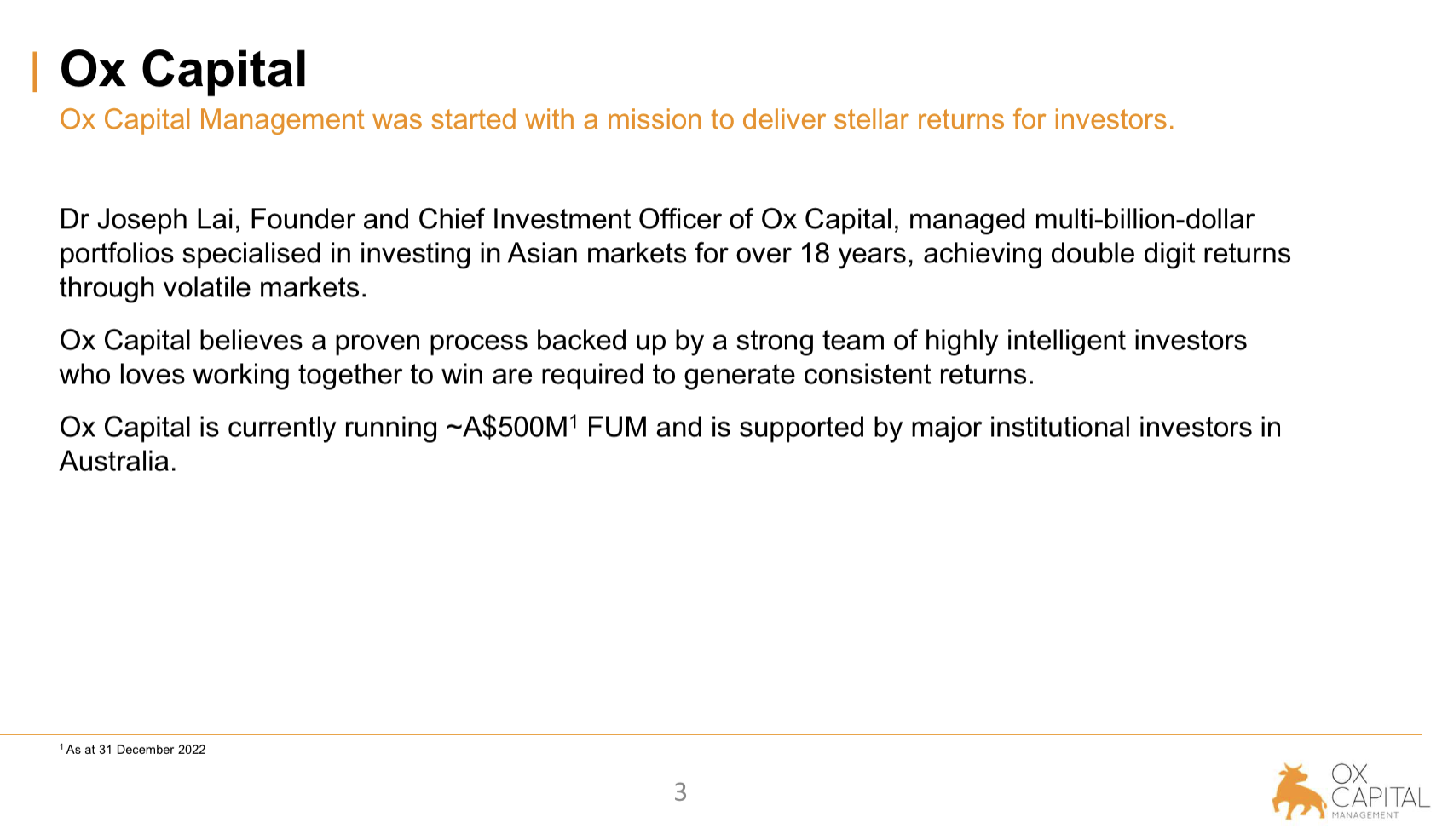
I started Ox Capital about 18 months ago and really the aim is to deliver great performance for our investors because we know that we've got a proven process and we got a team of very intelligent investors. And when a great team is working together, we know that great things follow. So at the moment, after 18 months, we are managing about half a billion Australian dollars. We've got Australian funds set up and one of which is the Ox Capital Emerging Market Fund and it is also set up in Europe as well.
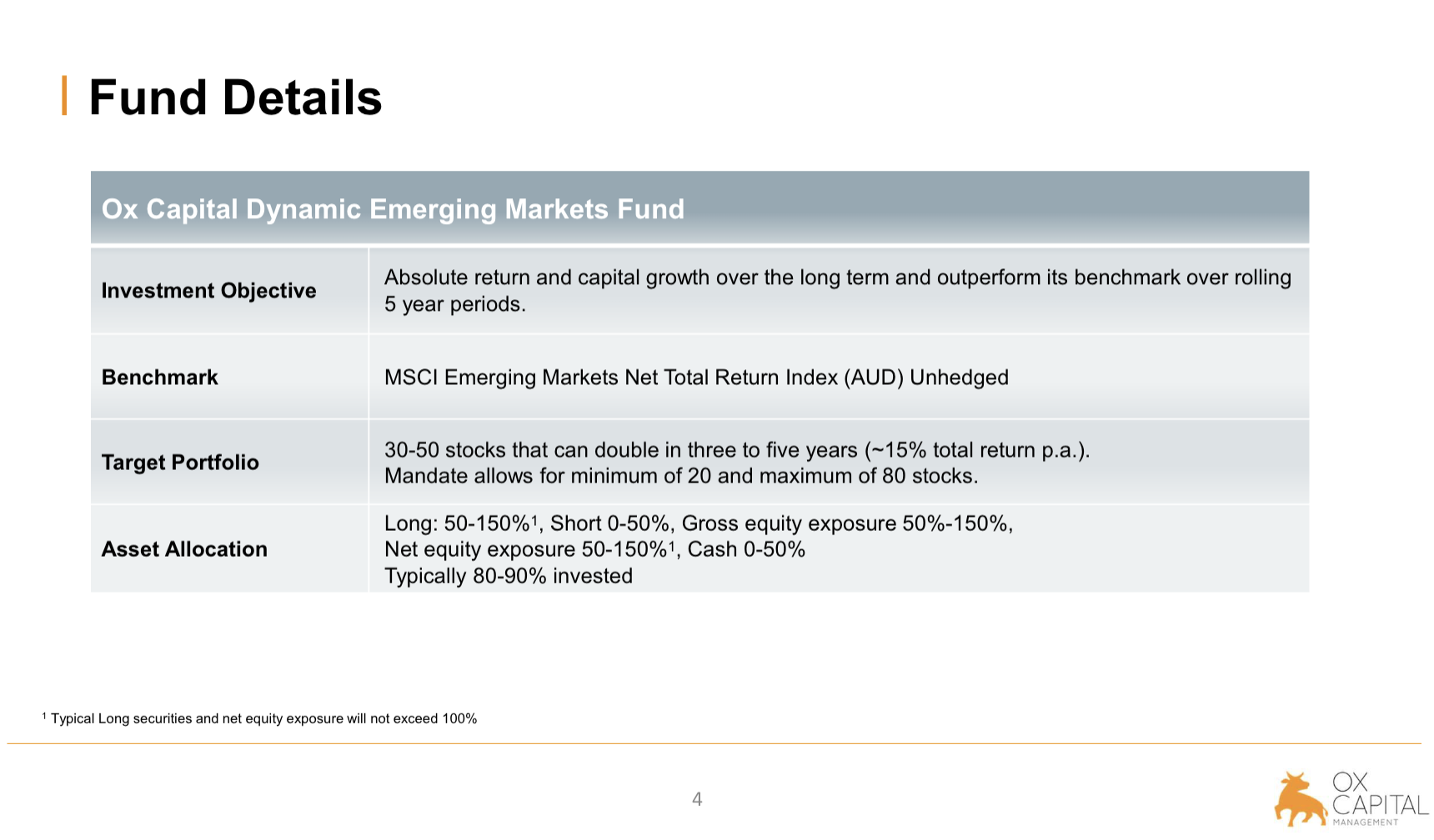
So the Ox Capital Dynamic Emerging Market Fund is basically a fund of 30 to 50 stocks that are exposed to the exciting trends in emerging markets. The aim of the fund is to deliver double-digit and around 15% return a year for investors in absolute terms. The fund has the capacity to adjust up and down investor positions from 50 to 100%. The typical exposure of the fund would be around 85 to 95%.
The ability to adjust down net investor exposures basically is intended to try to reduce the volatility that may be inherent in emerging market equities investing.
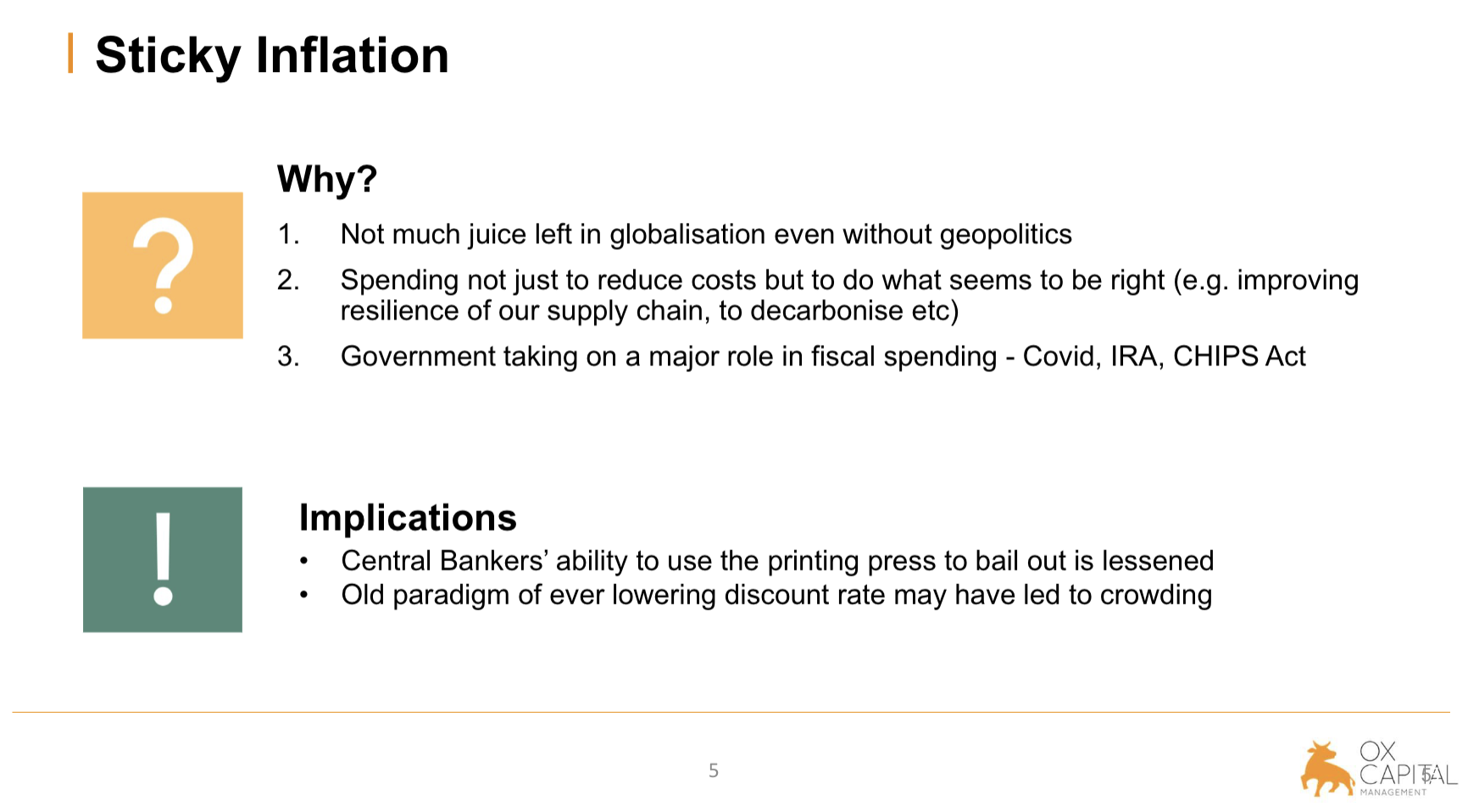
So, we believe the world is changing. We believe that inflation will get stickier going forward. And the implication of that is that the market has been chasing assets in the last 15 years they've been chasing assets which predominantly benefited from falling inflation and lowering interest rates. But if we believe going forward inflation will be on average higher.
That strategy may not be as fruitful and, in fact, there may be quite a lot of crowding into these assets, which needs to be unwound. We believe that emerging markets actually may be one of the solutions. So it's well worth thinking about the potential for diversification into this asset class. So, why are emerging market equities interesting in this context of stickier inflation?
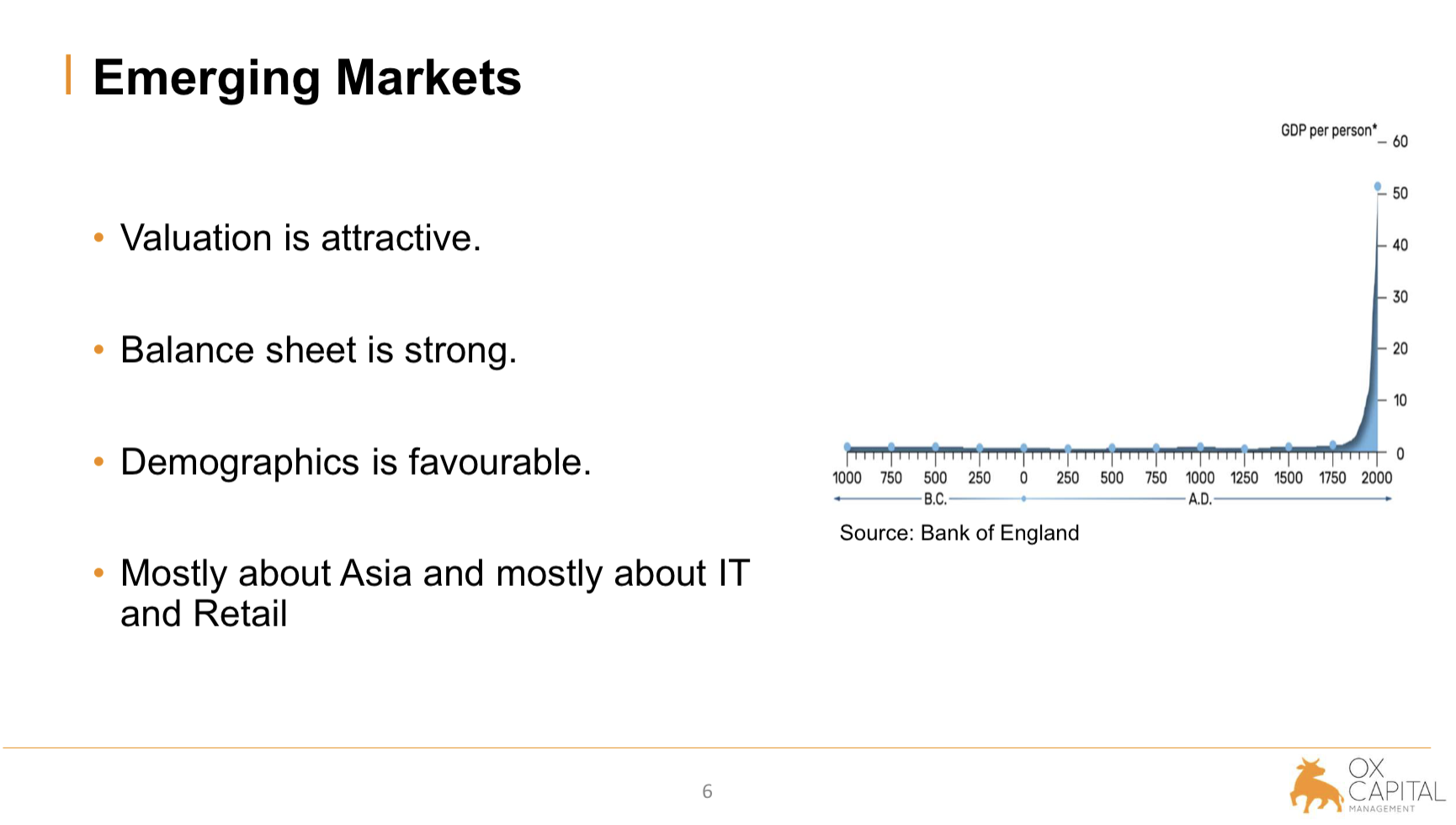
Well, emerging markets are fast-growing countries that are mostly considered developing nations. They are mostly in Asia and some in Latin America and in other parts of the world. They're used to higher levels of inflation and they have strong endogenous growth. On top of that, they actually have a very attractive valuation right now.
If we look at the emerging market benchmark, it basically is where it was about 13/14 years ago at the same time when the economies and the companies within these countries have been growing in many cases double digits over that time. So, as you can imagine, the valuation of price-to-earnings multiple, even for very good companies, is very attractive. Valuation is good, the balance sheet is strong, demographics are favourable and most of them [countries] have a young population.
When we talk about emerging markets, we're also not necessarily just talking about commodity producers or natural resources producers anymore. We're talking about in many cases - sophisticated technology companies, Internet companies and also in retail.
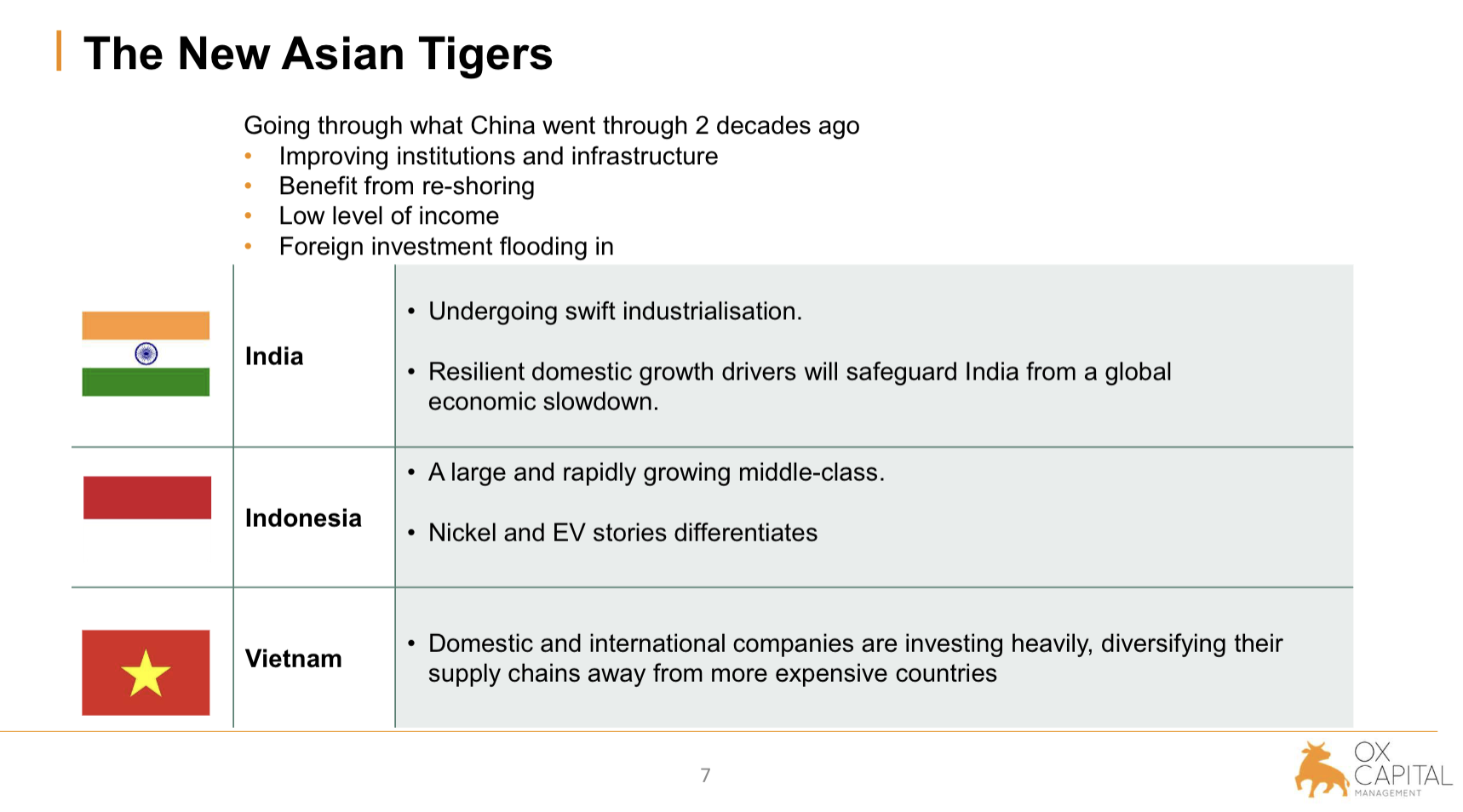
So within emerging markets in particular, we are very positive on a few countries and that's where we spend the bulk of our time. And these countries include India, Indonesia and Vietnam. Why are we excited about them?
We're excited about them because we think they're going through this dramatic transformation. We are calling them the new Asian Tigers. What do I mean by that? Well, you know they, first of all, have a low level of income, US$2,000 to $4,000 dollars per capita. They're experiencing an improvement in infrastructure, investment, and technology transfer as well as the growing consumption class and they also benefit from increased investment in the resilience of the supply chain.
So a lot of the factories are sort of moving to these countries. It's called on-shoring by some people. And so we are seeing factories springing up across these countries and people getting better jobs and getting paid more. So we think consumption, investment infrastructure, and exports are growing in these countries and we believe you'll see that go on for a long time. So we are very positive about them that way.
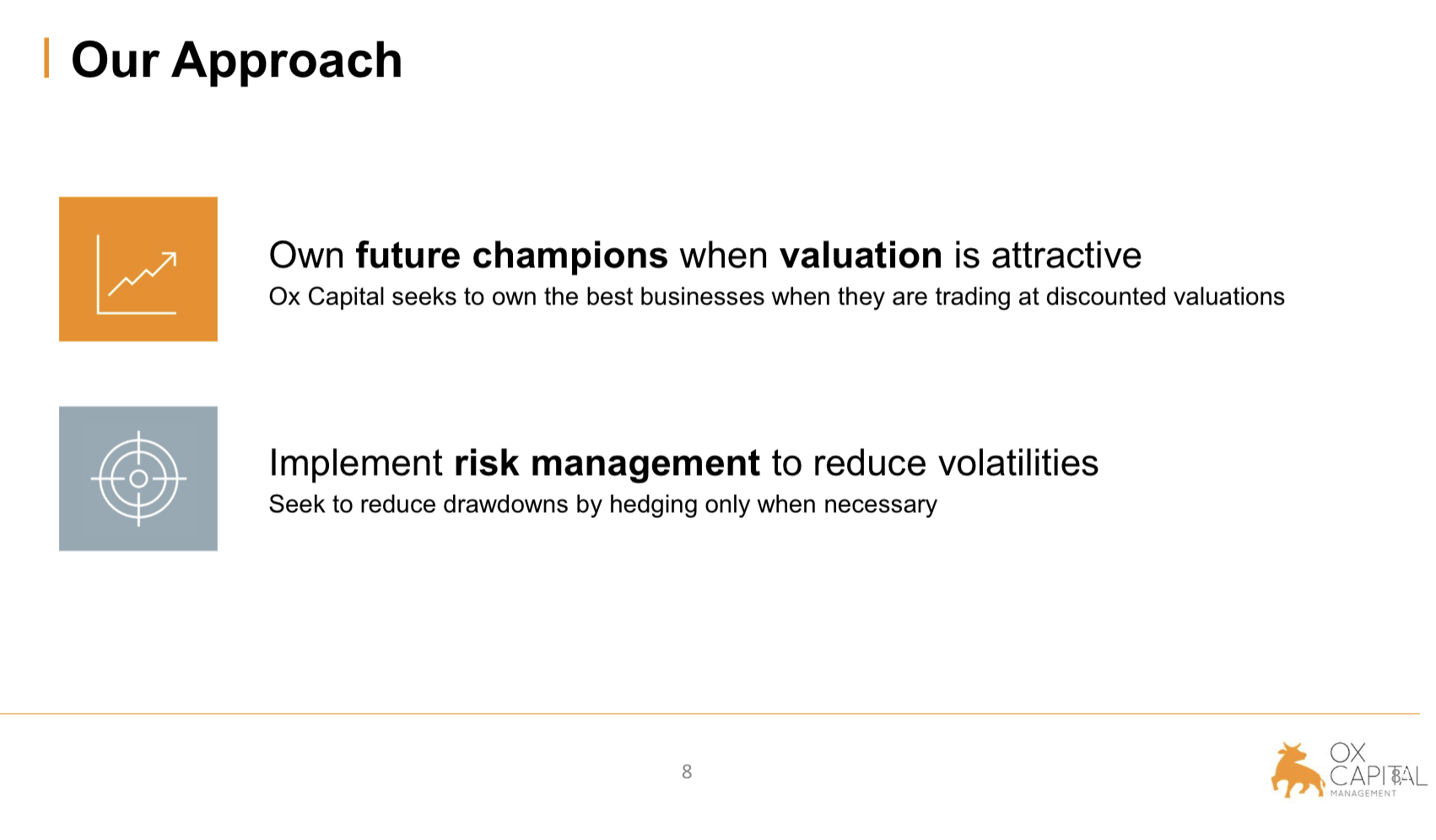
Our approach is actually quite simple. The philosophy is simply that we want to own future champions or current champions or when the valuations are attractive and our approach is basically to do that, to look for these companies which are cheap and good in the long term. And on top of that, we do have a risk management model which helps us to reduce the volatility experienced by the investor in emerging markets.
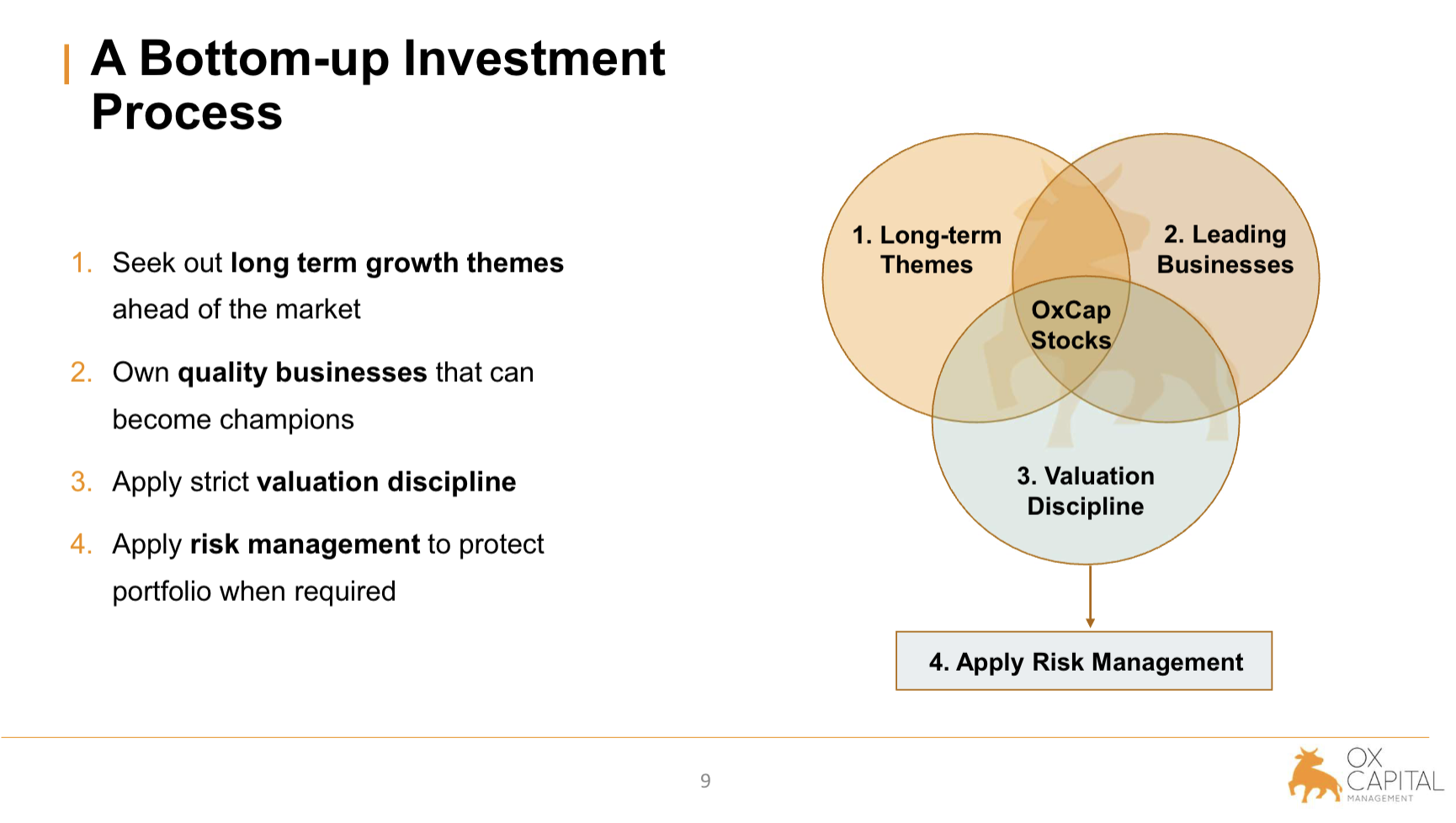
So the process is quite simple, with three main steps followed by risk management.
First of all, we look for long-term themes that are sustainable ahead of the market realising it's an exciting long-term theme, or when the long-term theme is out of favour.
Second, we want to buy quality businesses that can be leveraged to this strong long-term theme. In fact, our preference is for these companies to have a real chance of becoming future champions in these markets.
And the third is "do not pay up". Have a strong valuation discipline so that we can buy really good companies cheaply. Now everyone wants good growth and good quality and the question may be how do we get it cheaply. Well, the reality is this.
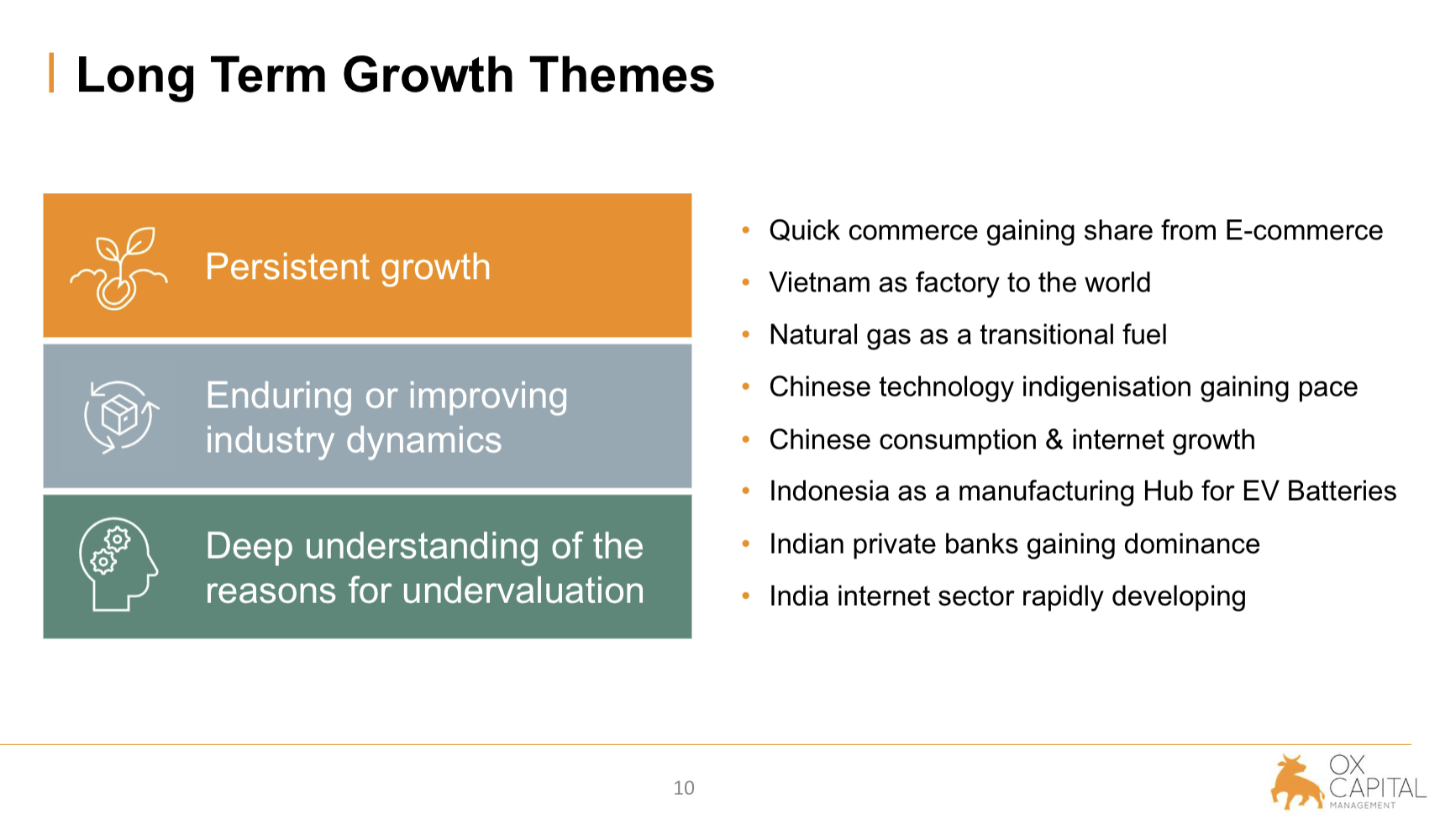
There are lots of good long-term growth themes in emerging markets and these themes can get in and out of favour.
When the themes get out of favour, we actually spend a lot of time making sure that the theme is still good and then we look for the leading companies.
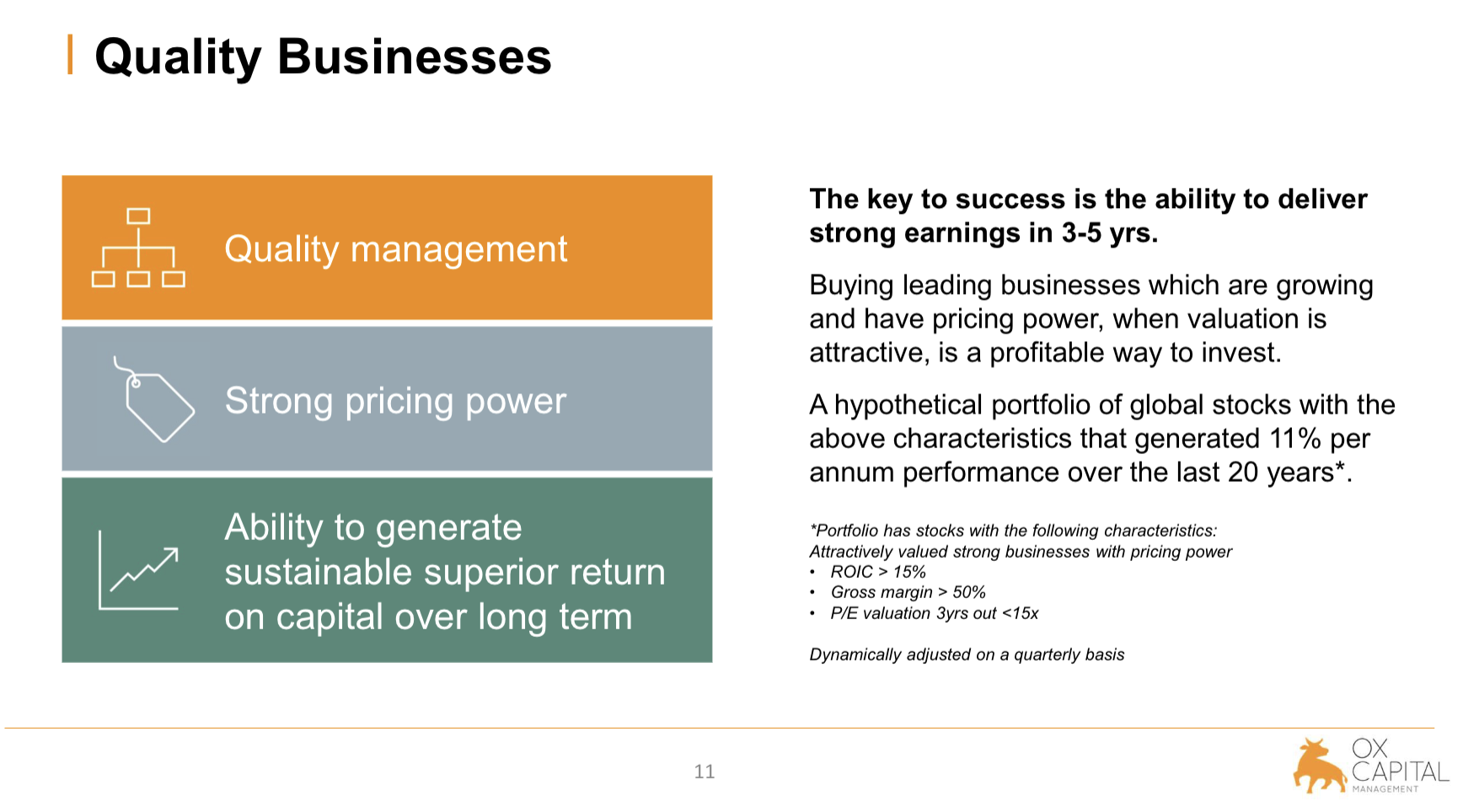
So there are a lot of interesting long-term themes in the emerging markets with a lot of growth and quality businesses. Now given that we are experienced in investing in these markets, we know which ones are the quality businesses.
And so we just keep laser-focused on the good ones that could become real champion companies and, as a result, we can actually get into these future champions at very attractive valuations.
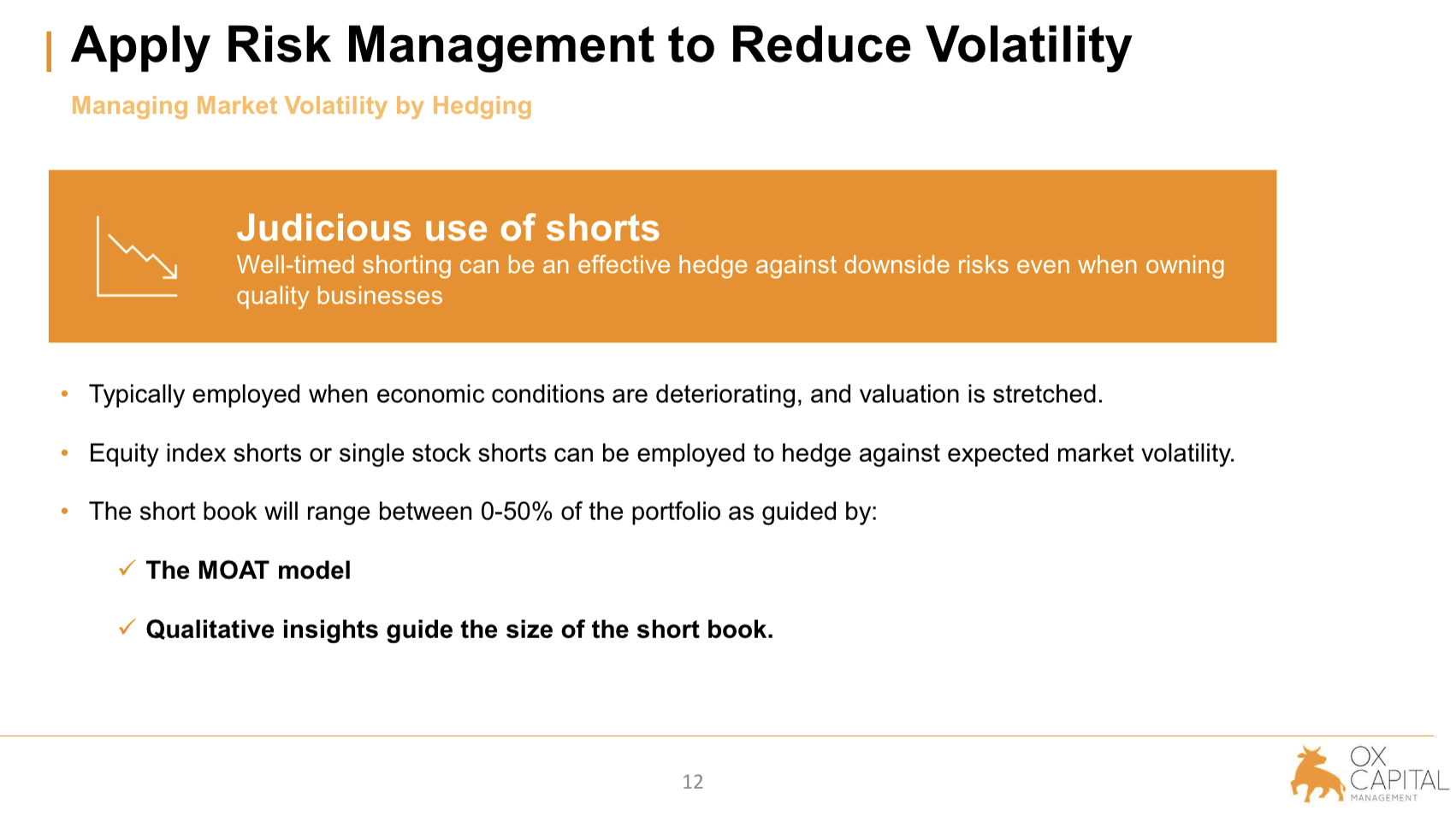
And I must talk a little bit about the risk management layer. For example, last year saw one of the most volatile markets that people have experienced. But in 2022, the Ox Capital Dynamic Emerging Markets Fund was, in absolute terms, flat for the year. This meant that we outperformed the benchmark by about 14%.
One of the reasons was actually our ability to actually risk manage and reduce exposure at the right time. This is really a complex model that we have developed over the years and that's been showing to work [sic]. On many occasions, this has been to provide downside protection for investors.
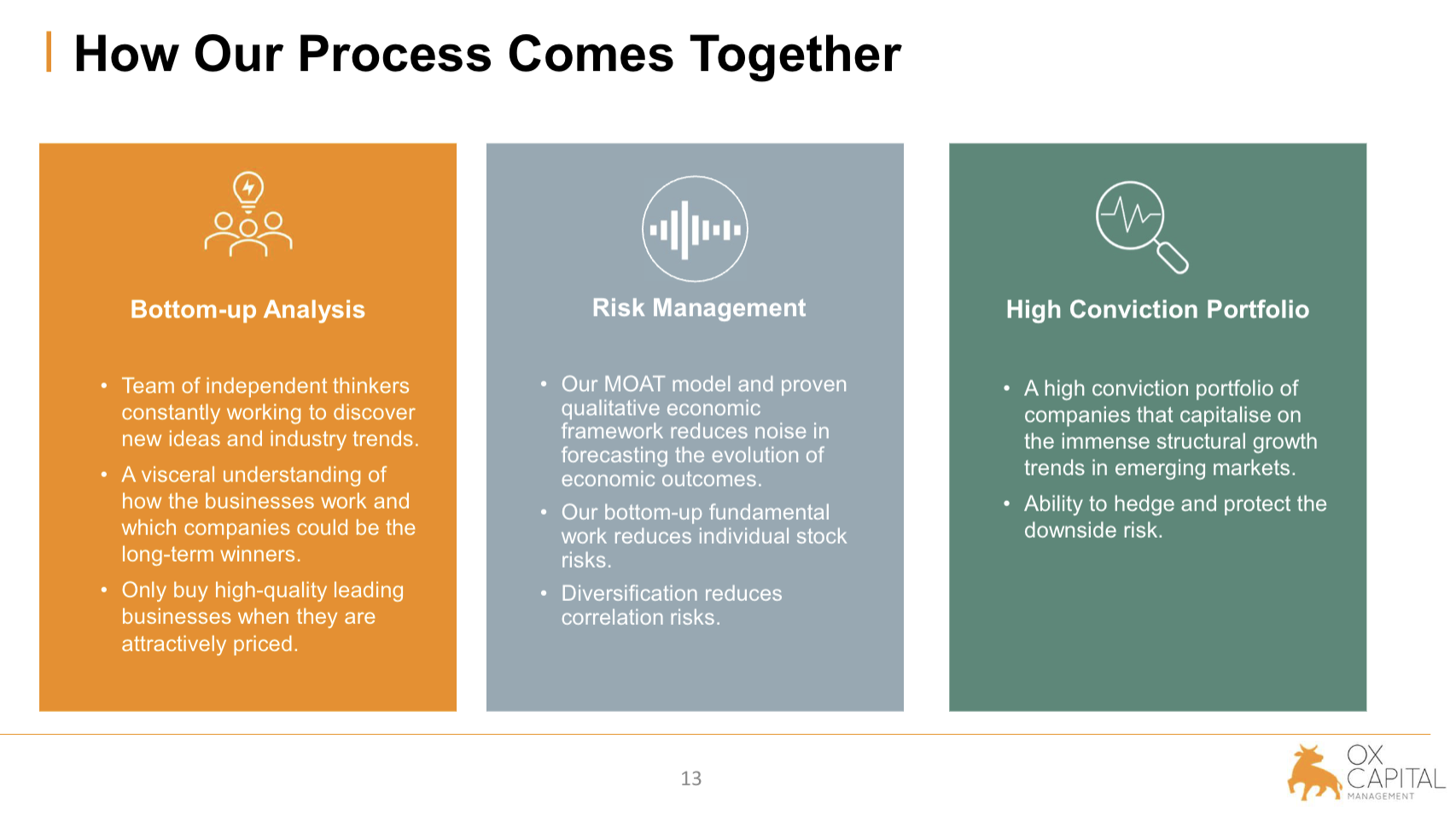
So to bring it together, we've got a strong, proven process that works which basically is geared towards identifying future champions in emerging markets with amazing, long-term growth sectors.
That's the bottom-up analysis. On top of that, we've got this risk management framework that allows us to reduce the downside experienced by the investor.
So as a result, the portfolio can grow with lower drawdowns. If you would like more information on Ox Capital Dynamic Emerging Markets Fund, please visit our website or use the contact details outlined on the slides.
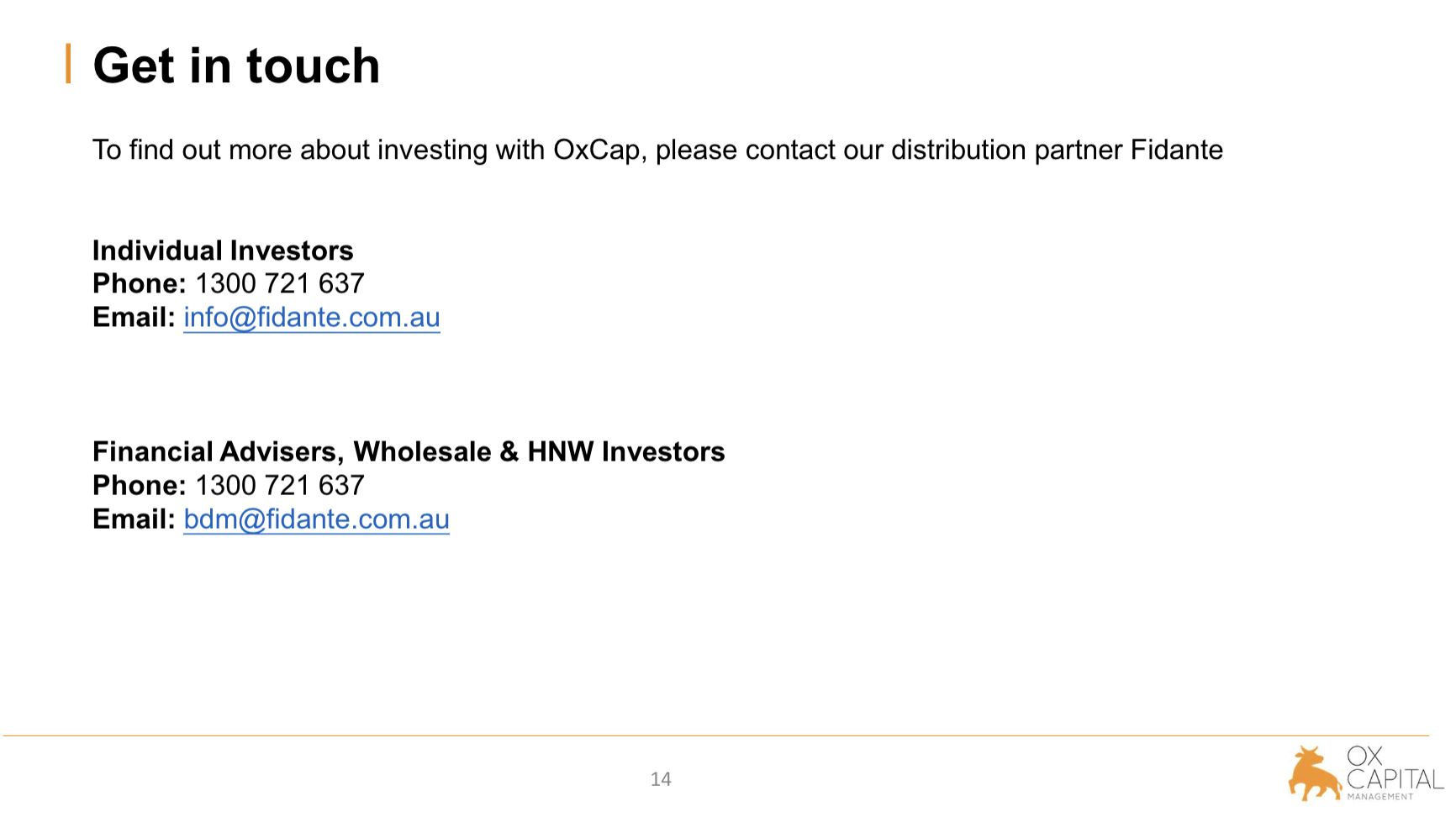
Take advantage of the rapid growth in Asia and emerging markets
Ox Capital's investment approach is to identify the immense changes taking place in Asia and other key emerging markets to find investment opportunities. To learn more, visit our website, or see the Fund Profile below.

1 topic
1 fund mentioned
.jpg)
.jpg)